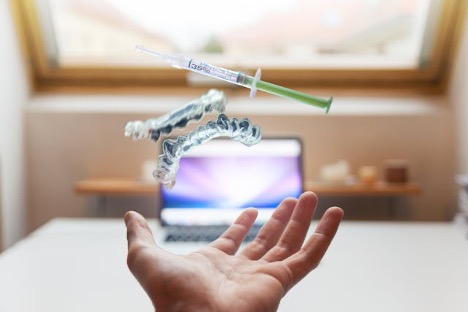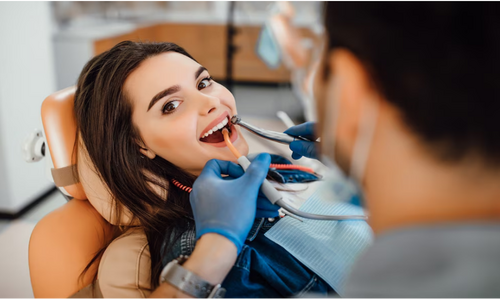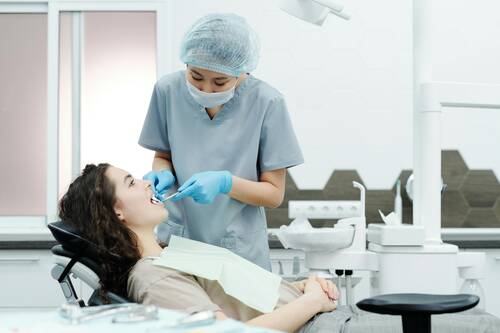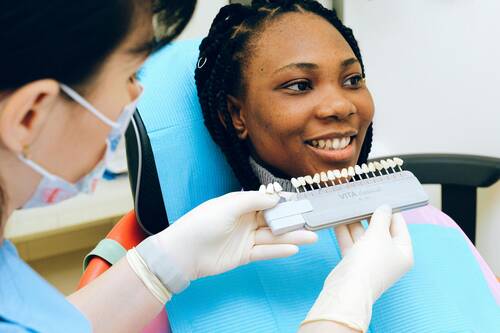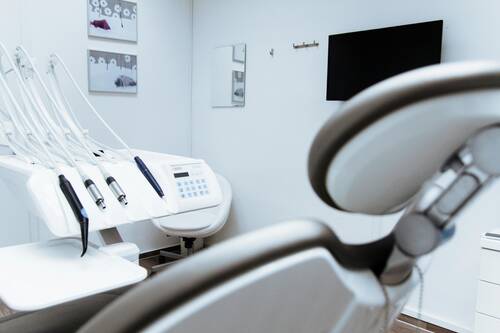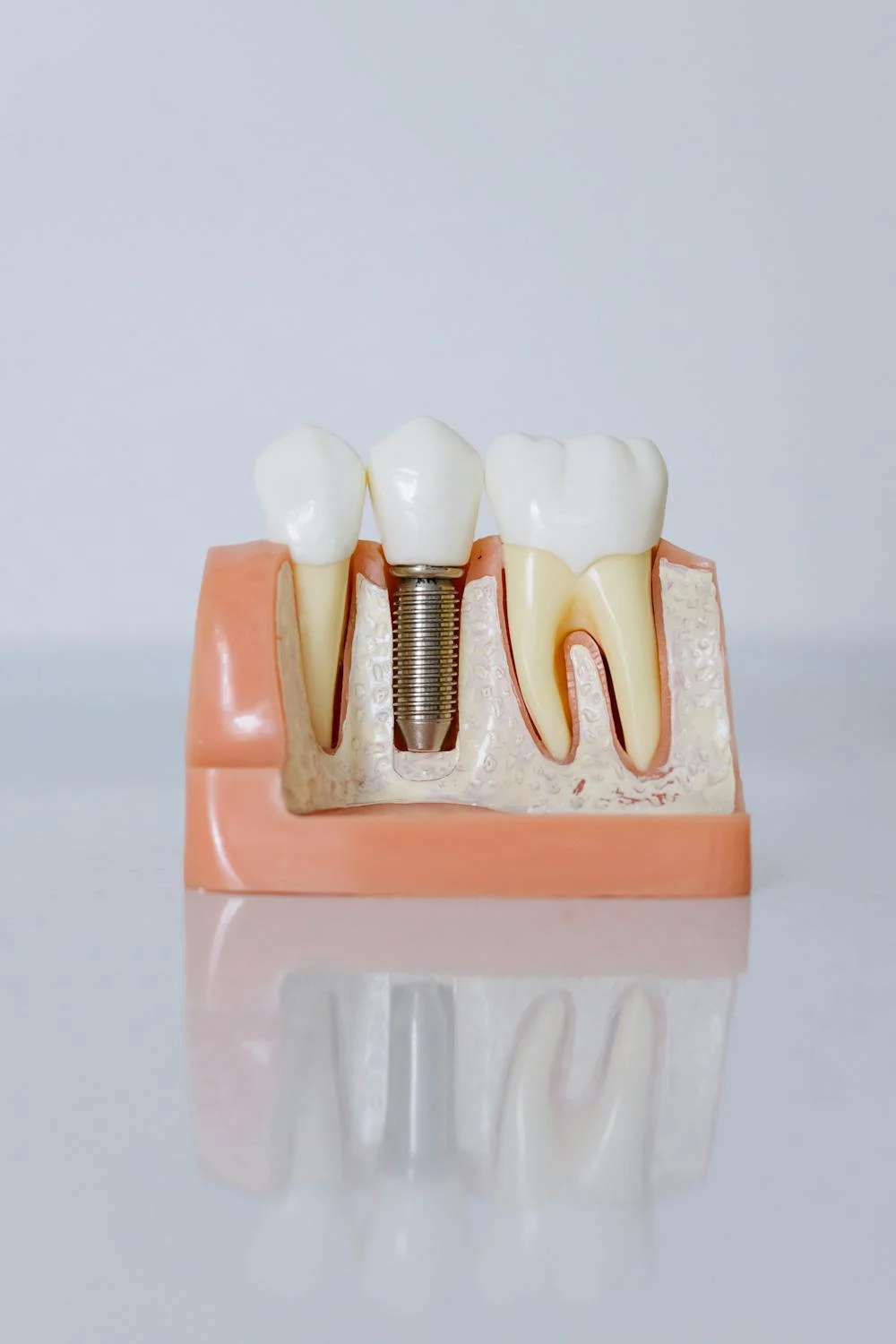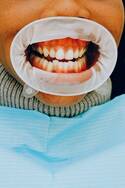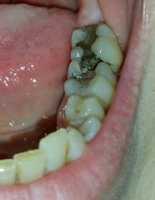- Orthodontic treatments offer a range of benefits beyond aesthetics, such as improved oral health and function.
- Technology has broadened treatment options, providing more comfort and effective results for patients.
- Personalized care is essential for achieving optimal orthodontic outcomes.
The Latest Advancements in Dental Crowns: How Innovative Materials and Techniques Are Improving Oral Health Outcomes
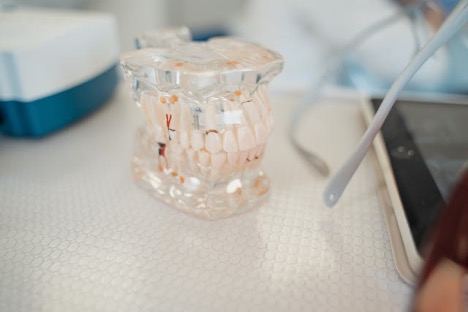 Innovation in dental crowns is not just a matter of aesthetic enhancement—it's a game-changer for oral health outcomes. As technology evolves, so does our ability to restore and enhance dental health through more sophisticated and tailored treatments. Recent advancements in dental crown technology are transforming what it means to receive a crown, making the procedures quicker, more accurate, and far less intrusive than ever before.
These innovations extend beyond mere improvements in materials or techniques; they redefine the patient experience and elevate the standard of care provided. By integrating cutting-edge materials with state-of-the-art fabrication processes, dental professionals can now offer solutions that look remarkably natural, function better, and last longer. This leap in dental technology not only enhances the efficiency of treatments but also significantly improves the overall oral health outcomes for patients across the globe.
(more…)
Innovation in dental crowns is not just a matter of aesthetic enhancement—it's a game-changer for oral health outcomes. As technology evolves, so does our ability to restore and enhance dental health through more sophisticated and tailored treatments. Recent advancements in dental crown technology are transforming what it means to receive a crown, making the procedures quicker, more accurate, and far less intrusive than ever before.
These innovations extend beyond mere improvements in materials or techniques; they redefine the patient experience and elevate the standard of care provided. By integrating cutting-edge materials with state-of-the-art fabrication processes, dental professionals can now offer solutions that look remarkably natural, function better, and last longer. This leap in dental technology not only enhances the efficiency of treatments but also significantly improves the overall oral health outcomes for patients across the globe.
(more…)- Introduction: The Power of a Radiant Smile
- Teeth Whitening: The Fast Track to Brighter Teeth
- Porcelain Veneers: Achieve a Flawless Finish
- Invisalign: Subtle Teeth Straightening for Adults
- Dental Bonding: Repairing Minor Imperfections with Ease
- Dental Implants: Restoring Function and Beauty
- Boosting Your Confidence with Cosmetic Dentistry
- Start Your Smile Transformation Today
5 Attributes Make a Dentist More Proficient & the Preferred Choice for Patients
For Invisalign users, maintaining oral hygiene is straightforward since the aligners can be removed. Regular brushing and flossing should be...
1. Teeth Whitening – A Quick Brightness Boost
When it comes to brightening your smile, teeth whitening is hands-down one of the most popular treatments from a cosmetic dentist. Whether you're dealing with coffee stains, years of wear and tear, or just want to amp up the brightness, teeth whitening offers a simple solution. Professional teeth whitening is far more effective than over-the-counter treatments. It’s quick, relatively inexpensive, and can brighten your teeth by several shades in just one session. Many people love how easy it is to transform their smile with such minimal effort. While results are immediate, they can last a long time with proper care—just avoid too much coffee or red wine afterward! (more…)You may want to get that new tooth in place as fast as possible, but skipping crucial steps like waiting...
What to Know about Invisalign for Kids in South Surrey? How Is It Different from Adults?
Understanding Invisalign for Kids
Invisalign South Surrey for Kids is specifically designed to cater to the unique dental needs of growing children. The treatment focuses on aligning teeth and guiding the proper jaw and teeth development. This early intervention is crucial in preventing more severe orthodontic issues later in life. While the clear aligners work similarly to those for adults, the process and considerations are different. (more…)Oakland residents have always valued good health and a vibrant lifestyle, and in recent years, there’s been a noticeable shift towards prioritizing oral health and dental aesthetics. Teeth whitening, in particular, has become a go-to treatment for those seeking to enhance their smiles.
With the increasing availability of advanced dental services in Oakland, many people are turning to professional teeth whitening to achieve that coveted bright smile. Just like keeping your skin clean and healthy with a cleansing bar, teeth whitening reflects a broader understanding of how white teeth contribute not just to oral health, but also to one’s overall appearance and attractiveness. In this article, we’ll explore the strong link between white teeth and physical attractiveness, beginning with the psychological impact of a bright smile.
(more…)Unlocking the Secret to a Better Smile
What Makes a Perfect Smile?
Components of a Beautiful Smile
White teeth alone don't make a beautiful smile! It has to do with color, alignment, and shape. Consider your grin as a piece of art, in which each component is important. Your teeth's symmetry, the condition of your gums, and even the way your lips surround your teeth all add to their lovely appearance.Personal and Social Benefits of Smiling
Smiling can improve social connections beyond aesthetics. It can improve your mood and make you seem more friendly. Have you ever noticed how your attitude changes when you glance in the mirror and see a smile on your face? It's not by accident! (more…)How to Maintain Strong Gums and Teeth
Regular dental check-ups, proper brushing and flossing, a balanced diet, and stress management are key practices that support a healthy...
- Convenience and Streamlined Scheduling: One of the most significant advantages of family dentistry is convenience. Family dentists can handle all your family's dental needs under one roof, eliminating the need to schedule separate appointments with different dentists. This saves you time and ensures everyone in the family receives regular dental care.
- Familiarity and Comfort: Regular visits with the same dentist foster a sense of trust and familiarity. This is especially important for young children who may experience anxiety during dental visits. A familiar environment and a dentist they know can make a world of difference, transforming a potentially stressful experience into a positive one.
- Continuity of Care: A family dentist can track your family's dental history, allowing for personalized treatment plans and early detection of potential problems. This continuity of care is crucial for maintaining optimal oral health throughout your life. Your dentist can monitor the development of your children's teeth, identify any potential issues early on, and provide preventative measures to avoid future complications.
- Understanding Family Dental Needs: Family dentists are trained to address the unique dental needs of each family member. From the eruption of a child's first tooth and the development of their primary and permanent teeth to the concerns of adults and seniors, family dentists are equipped to handle all stages of oral health.
- Comprehensive Preventive Education: A family dentist not only provides routine care but also emphasizes preventive education tailored to your family’s specific needs. They can teach children the importance of brushing and flossing, provide dietary recommendations to support healthy teeth, and offer advice on preventing dental issues like cavities and gum disease. According to these dentists in San Antonio TX, by equipping your family with the knowledge to maintain good oral hygiene, they help ensure a lifetime of healthy smiles.
Understanding the Types of Damage and Discoloration
Tooth damage and discoloration can manifest in various ways:- Chipped or Cracked Teeth: These can be caused by accidents, biting down on hard objects, or teeth grinding. The severity of the chip or crack will determine the most suitable treatment.
- Worn Teeth: Over time, teeth can wear down due to age, grinding, or acidic foods. This can expose the underlying dentin, making teeth appear yellowed.
- Stains and Discoloration: Coffee, tea, red wine, and smoking are notorious for staining teeth. The aging process and certain medications can also contribute to discoloration. The extent and depth of the stain will influence the appropriate whitening method.
- Start Oral Hygiene Early
- Regular Dental Checkups
The Benefits of Regular Dental Check-Ups: Ensuring Lifelong Oral Health
- Regular dental check-ups play a critical role in maintaining oral health and preventing dental issues.
- Professional cleanings remove plaque and tartar that are difficult to eliminate with at-home brushing and flossing.
- Early detection and treatment of dental problems can save on more extensive and expensive procedures in the future.
- Routine dental visits contribute to overall health by potentially identifying systemic issues like diabetes or heart disease.
Gum health is a key factor for general health throughout life
Dental Work: Patient Satisfaction No Better With Opioids For Pain
Dentists Can Help Turn Around Opioid Epidemic
Majority of Antibiotics Prescribed Before Dental Procedures Are Unnecessary
- 1
- 2


